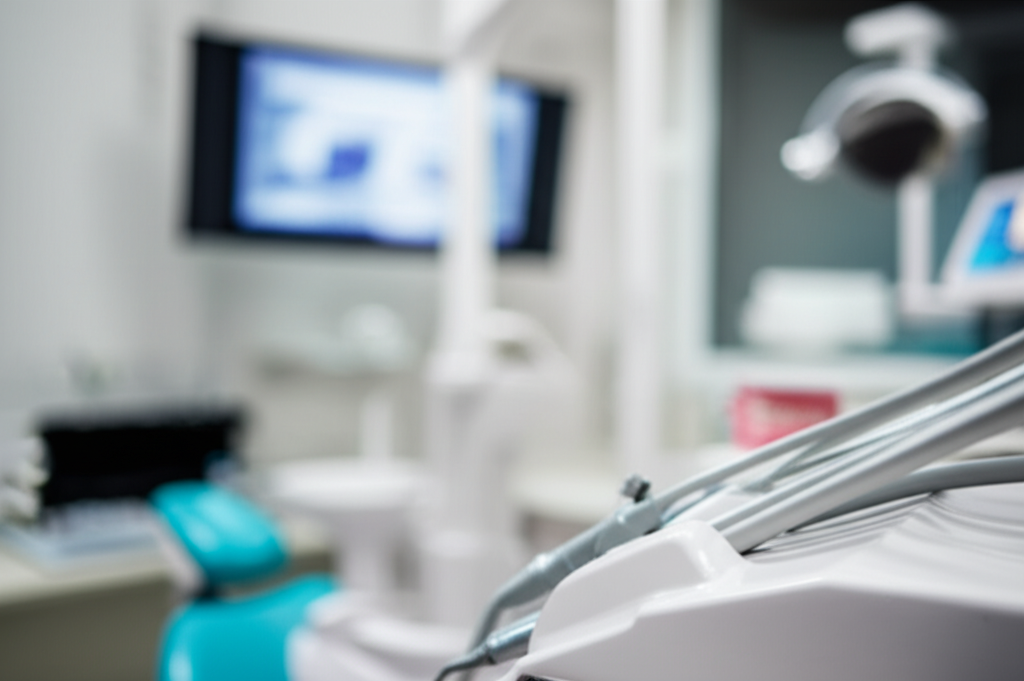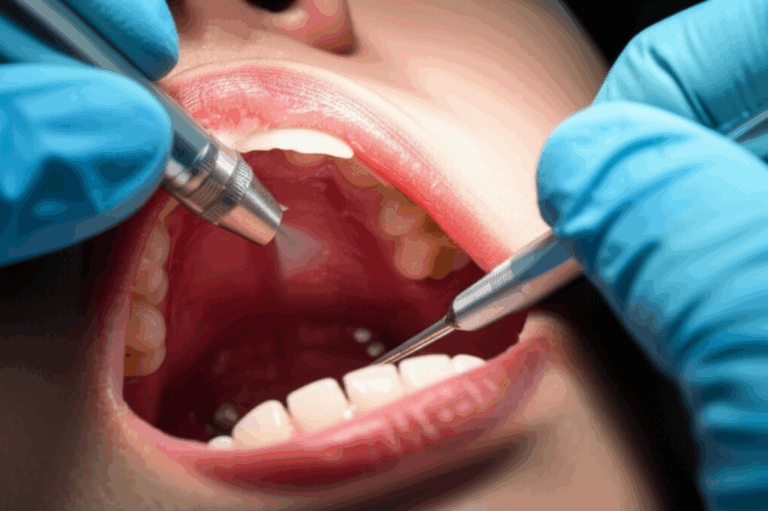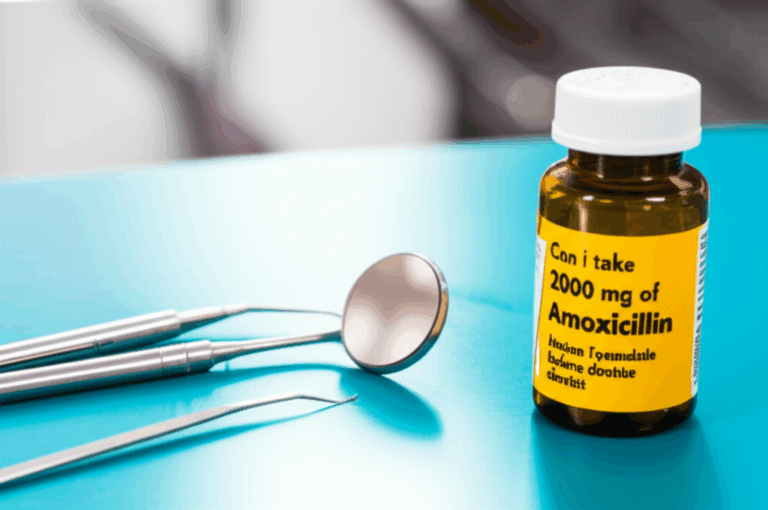
The Complete Educational Path to Becoming a Dentist: Degrees, Specialties & Requirements
Ever wondered, “What career education would a dentist be in?” Maybe you’re a student thinking about your future, a parent helping your child plan ahead, or maybe you just want to know what it takes for the people who help us smile and fix our teeth. Whatever brought you here, you’re asking a good question—one that’s more common than you might think. Becoming a dentist is a big commitment, but it’s also a rewarding path with many choices.
Stick around. By the end of this article, you’ll see every step you need to take to become a dentist, from high school all the way to when you finally get your DDS or DMD certificate up on the wall. You’ll also get tips on specialties, licensing, and how to figure out if dentistry is really right for you.
In This Article
- The Many Jobs of a Modern Dentist
- High School: Starting Your Path to Dentistry
- College: Your Pre-Dental Years
- The Dental Admission Test (DAT): What to Know and How to Study
- Applying to Dental School: Putting Your Application Together
- Dental School: Getting Your DDS or DMD
- After Dental School: Getting Licensed
- Dental Specialties: Going Beyond General Practice
- Learning After School: Keeping Up in Dentistry
- The Cost: How Much It Really Is
- Is Dentistry Right for You? Skills & Job Outlook
- Your Path Forward: Summary & Tips
The Many Jobs of a Modern Dentist
Let’s start with the heart of your question: What do dentists really do, and why do they need so much education?
Dentists don’t just fill cavities or pull teeth. They’re trained health workers who find, treat, and help stop problems and sickness in the mouth, gums, and jaws. You can think of them as part doctor, part scientist, and part artist—finding small problems before they get big, helping smiles look better, and sometimes even doing surgery. Whether you want to straighten teeth (orthodontics), fix them with crowns and bridges, or focus on kids or tough surgeries, the schooling gets you ready for all kinds of dental jobs.
It’s a long path for a reason: getting a degree in dentistry means you’re in charge of someone’s health, comfort, and confidence every day.
High School: Starting Your Path to Dentistry
Question: “I’m in high school—what can I do now to get ready?”
Great question! You might think you have to already know every bone in the body or be great at math. You don’t need to know everything yet, but some high school choices will help you out:
What Classes Should You Take?
Focus on science classes:
- Biology: Learn about cells, tissues, and living things (you’ll see these again later).
- Chemistry: Get used to how chemicals work together (very important for dental school).
- Physics and Math: Helps you with logic, solving problems, and thinking through tough cases.
If your school has AP or IB science classes—take them! They get you ready for college and show schools you can handle hard work.
Activities Outside Class
- Shadow a dentist: Even a few hours gives you a real look at the job.
- Volunteer in healthcare: Hospitals, clinics, or health events all help.
- Science clubs or contests: Shows you care and want to do more.
Grades, Habits, and Character
Aim for good grades: Dental schools are hard to get into, and a good GPA now makes things easier later. It’s not just grades, though—build study habits and time management now. You can also work on your hand skills—playing music, painting, or even video games can help!
College: Your Pre-Dental Years
Question: “What should I study in college to be a dentist?”
Here’s the truth: Dental schools don’t need you to major in “pre-dental,” but they do want you to take certain science classes and usually finish college. Here’s what to look at:
What Should Your Major Be?
Science majors like Biology, Chemistry, or Biochemistry are common because they cover the needed classes. But if you love English, art, or history, that’s okay! Just make sure you take the required science classes and keep your GPA high (try for 3.5 or better overall, a little lower in science is fine), and you’ll still have a shot.
Science Classes You Have to Take
Almost every dental school will want you to take:
- General Biology (with lab)
- General Chemistry (with lab)
- Organic Chemistry (with lab)
- Physics (with lab)
- English (writing is really important)
- Math/Statistics (more common now)
Always check what the schools you like want—sometimes there are extras like Microbiology, Anatomy, or Biochemistry.
Making Your Application Stand Out
- Shadowing: Watch a dentist at work. Most applicants do 50–200+ hours.
- Volunteering: Community clinics or charities look great. Showing you care about helping people matters.
- Research: Not needed, but helps, especially for top schools.
- Leadership and Communication: Join pre-dental clubs or other groups.
Talk to your college’s pre-dental advisor early—they’ll help guide you.
The Dental Admission Test (DAT): What to Know and How to Study
Question: “What is the DAT, and how big a deal is it?”
The Dental Admission Test (DAT) is your next big step. Think of it as your dental “driver’s test.” It checks if your science, reading, and math skills are strong enough for dental school. The test covers:
- Natural Sciences (Biology and Chemistry)
- Perceptual Ability (seeing and thinking in 3D—important for tiny spaces)
- Reading Comprehension
- Math (Quantitative Reasoning)
How Should You Study?
This isn’t a test you do the night before. Give yourself a few months at least. Try:
- Official DAT prep books and practice tests
- Online courses
- Study groups
Aim for a score of 20–21—that’s what most people who get in score.
Applying to Dental School: Putting Your Application Together
Question: “How do I actually get into dental school?”
Use the AADSAS (Associated American Dental Schools Application Service) to apply. Here’s what to include for a strong application:
What Goes in Your Application
- Personal Statement: Tell your story and why you want to be a dentist. Be real and personal.
- Letters of Recommendation: You’ll need some from your science teachers and a dentist who knows you.
- Experience Record: List your shadowing, volunteering, and health-related jobs or leadership roles.
The Interview
If you get picked, you’ll get an interview. Be ready to talk about:
- Why you picked dentistry
- Your health care experience
- How you handle stress
- How you handle tough situations
Dental schools are hard to get into: ~50-60% of applicants get in somewhere, but only the best all-around students get into the hardest schools.
Dental School: Getting Your DDS or DMD
Question: “What happens once I get in?”
When you get in, you’ll spend four years learning science, practicing skills, and working hands-on. Both the Doctor of Dental Surgery (DDS) and Doctor of Dental Medicine (DMD) mean the same thing, with the same classes and training. Which one you get depends just on what the school calls it.
What You’ll Learn
- Years 1-2: Class time and labs in Anatomy, Physiology, Biochemistry, Microbiology, and more. You’ll practice your dental skills on fake teeth in a lab.
- Years 3-4: You’ll work with real patients (don’t worry, it’s supervised!). You’ll do things like fillings, pulling teeth, crowns, root canals, and preventive care. Some schools will teach you about specialties too.
What’s Dental School Like?
It’s hard: expect 35–40+ hours a week with classes, labs, and clinics, plus homework and study time at night. You’ll get close to your classmates—they’re the only ones who really know how tough it is!
After Dental School: Getting Licensed
Question: “After school, am I finally a dentist?”
Almost! Now you need a license.
Tests and License
- National Board Dental Exam (NBDE/INBDE): A big written test on everything you’ve learned.
- State Clinical Tests: Tests in person, where you do real dental procedures.
- Law and Ethics Test: Checks that you know local rules and how to treat people right.
Once you pass, you’re a licensed dentist. You can see patients and work in your own office, in a public clinic, or with a group.
Optional Extra Training
Some dentists choose to do extra training, such as:
- General Practice Residency (GPR): In a hospital, with more medical training.
- Advanced Education in General Dentistry (AEGD): More time seeing tough cases and learning new skills.
Dental Specialties: Going Beyond General Practice
Question: “How do dentists become orthodontists or oral surgeons?”
After dental school, you can apply for extra training in a specialty. This is called a residency, and it’s another 2-6+ years, depending on the specialty.
Common Dental Specialties
- Orthodontics: Braces, aligners, fixing bites.
- Pediatric Dentistry: Working with kids.
- Oral and Maxillofacial Surgery: Surgeries, removing wisdom teeth, jaw reconstruction.
- Periodontics: Treating gum disease.
- Endodontics: Root canal work.
- Prosthodontics: Making dentures, crowns, and big restorations.
- Oral Pathology: Finding diseases in the mouth.
- Dental Anesthesiology, Dental Public Health, Orofacial Pain—and a few more!
Each specialty needs its own board test (usually another written and practical exam). You might also work with new tech and materials like in a digital dental lab.
Getting In and How Hard It Is
Specialty spots are tough to get. You’ll need top grades, strong recommendations, and sometimes research or teaching experience. The bonus? Higher pay, harder cases, and leadership chances.
Learning After School: Keeping Up in Dentistry
You don’t stop learning after your first license.
Why Keep Learning?
You need more training to keep your license in most states and to stay up to date. You’ll learn about:
- New tech: Digital X-rays, 3D printing, lasers, computer-designed crowns, and better dental materials. Labs like emax dental lab can help you learn new tricks.
- New research: Using the best, new info keeps your patients safe.
- New ways to care for people: Better ways to manage pain, stop infection, work with insurance, and more.
Think of it as tuning up your skills—always trying to give the best care possible.
The Cost: How Much It Really Is
Question: “How much does it cost to become a dentist, and is it worth it?”
There’s no way around it—dental school is expensive. Here’s a quick look:
What Does It Cost?
- College Degree: Just like any other bachelor’s degree (depends on where you go).
- Dental School Tuition: $40,000–$90,000 each year (2022–2023 averages), more if you’re out-of-state or in a private school.
- Total Cost Each Year: With tools, books, and living costs, you may spend $70,000–$120,000 per year.
- Student Debt: Most new dentists finish with $300,000–$400,000 owed.
How to Pay
- Federal student loans: Most common choice.
- Scholarships and grants: From dental groups, schools, and local groups.
- Military scholarships: The U.S. military will pay your tuition if you work for them for a few years.
- National Health Service Corps (NHSC): They help pay loans if you work in places that need dentists.
Is It Worth It?
General dentists make about $163,000/year (BLS, 2022) on average, and specialists make even more. You also get job security and the chance to help people every single day.
Is Dentistry Right for You? Skills & Job Outlook
Question: “Do I have what it takes to become a dentist?”
Here are some things you’ll need:
- Good hand skills: You work in tiny areas with small tools.
- Communication: You have to talk with, explain to, and calm down nervous people all the time.
- Caring: You’ll work with scared or hurting patients.
- Problem-solving: Every mouth is different.
- Attention to details: Tiny mistakes can be a big deal.
Work-Life Balance
Dentists often have better work-life balance compared to other health jobs. You can pick your hours, own your office, or work in a clinic. The job outlook is good, and more women are choosing the field too (now over one-third of all dentists!).
Your Path Forward: Summary & Tips
Here’s what you need to remember:
- Expect 8-10+ years of school: 4 years of college, 4 years of dental school, and maybe more for a specialty.
- You’ll need: Strong science background, good hand skills, people skills, and drive.
- Every step matters: Start strong in high school, focus in college, study for the DAT, work hard in dental school, and never stop learning.
- You get a lot back: It’s a trusted job, steady work, and you help people every day—plus chances for leadership and running your own office.
What Should You Do Next?
Bottom line: Whether you’re just signing up for biology or leading a pre-dental club, you’re starting on a path that helps people—sometimes in ways you can’t even imagine yet. Start strong, keep asking questions, and remember: every dental career begins with someone just as curious as you.
If you have questions about your own situation or want to learn about things like 3D printing in dentistry or new dental materials, don’t be afraid to reach out to a local dentist or dental school advisor. Good luck—you got this!








